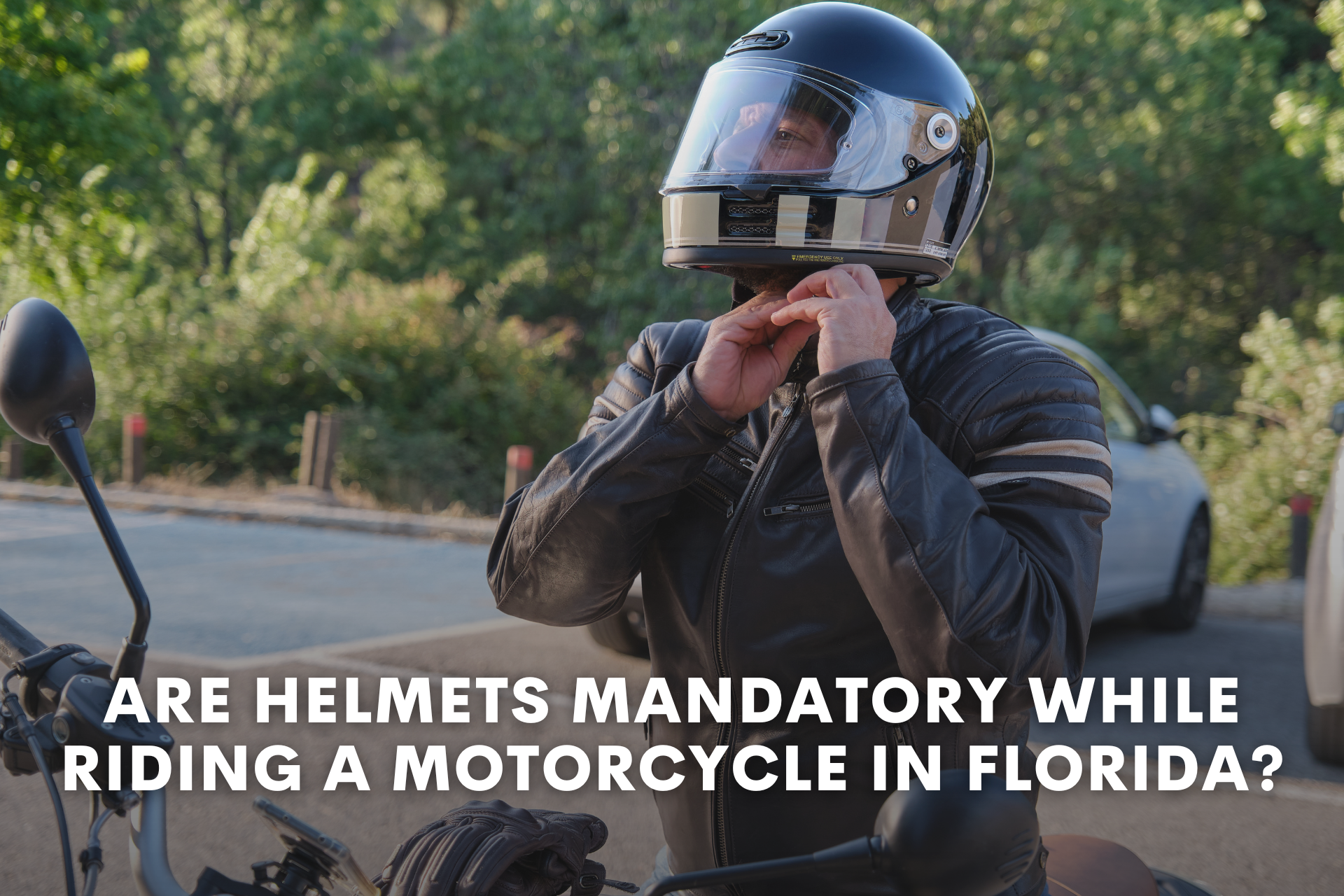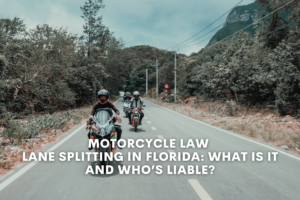Motorcycle helmet laws in Florida can be confusing.
This blog will help you understand the law, how helmets can influence your personal injury case, and statistics highlighting the importance of wearing a helmet while riding a motorcycle.
Are helmets mandatory in Florida?
According to the Florida Highway Safety and Motor Vehicle Department, over 6,000 motorcycle crashes occurred in 2023.
With Florida having one of the highest rates of motorcycle accidents in the nation, it’s important to know the safety laws to protect yourself and your passengers.
Florida’s motorcycle helmet laws are as follows:
- Helmets are mandatory for motorcycle operators and riders under 21 years old.
- Helmets are not mandatory for riders with at least $10,000 in medical insurance coverage for potential injuries sustained in a motorcycle accident.
- Regardless of age, motorcycle operators must wear eye protection that complies with the Department of Highway Safety and Motor Vehicles standards.
The “Helmet Defense” in motorcycle accident cases
What is the “helmet defense” in motorcycle accident cases?
The “helmet defense” is a legal tactic insurance companies and defense attorneys commonly use to argue that the motorcyclist’s injuries were caused or worsened by their failure to wear a helmet.
This defense strategy is used to reduce the defendant’s liability and potentially lower the compensation the motorcyclist receives.
Here’s an example.
A motorcyclist named John is riding on the highway. He’s over 21 and has the necessary insurance coverage, which makes his helmet optional.
Another car, driven by Tara, attempts to change lanes, but she doesn’t check her blind spot.
Tara collides with John.
He crashes and suffers severe head injuries as a result.
Mike files a personal injury lawsuit against Tara for compensation for his medical bills, lost wages, and pain and suffering.
Though Tara is partially responsible for the accident, her lawyers use the helmet defense strategy.
They acknowledge her responsibility but challenge that John’s decision not to wear a helmet while riding his motorcycle contributed to the severity of his injuries.
Her defense team could:
- Collect and present expert testimonies that suggest a helmet could have reduced or even prevented his injuries.
- Claim that John not wearing a helmet constitutes comparative negligence to potentially reduce his compensation.
- Bring facts from studies that show how wearing a helmet on a motorcycle can reduce the risk of death and head injuries.
The outcomes for a case like this can differ. If John’s injuries are primarily head-related, the helmet defense can hold more weight.
However, John’s team can argue that Tara’s negligence and unsafe lane change caused the accident.
Three statistics that support the use of helmets while riding a motorcycle
Though there’s a partial helmet law in Florida, we encourage using helmets regardless.
Here are three safety statistics that highlight the benefits of wearing a helmet:
- Motorcycle helmets reduce the risk of head injury by 69% and reduce the risk of death by 42%. (Advocates for Highway and Auto Safety)
- Unhelmeted riders are 41% more likely to experience a trauma-induced brain hemorrhage. (Eastern Association for the Surgery of Trauma)
- Studies have found that helmets reduce the risk of death by 37%-42%. (NHTSA 2008)
If you or someone you know regularly rides a motorcycle, we encourage you to review our do’s and don’ts of motorcycle safety blog.
If an accident occurs, please contact our skilled team of personal injury lawyers to review your case and get you the compensation you deserve.








